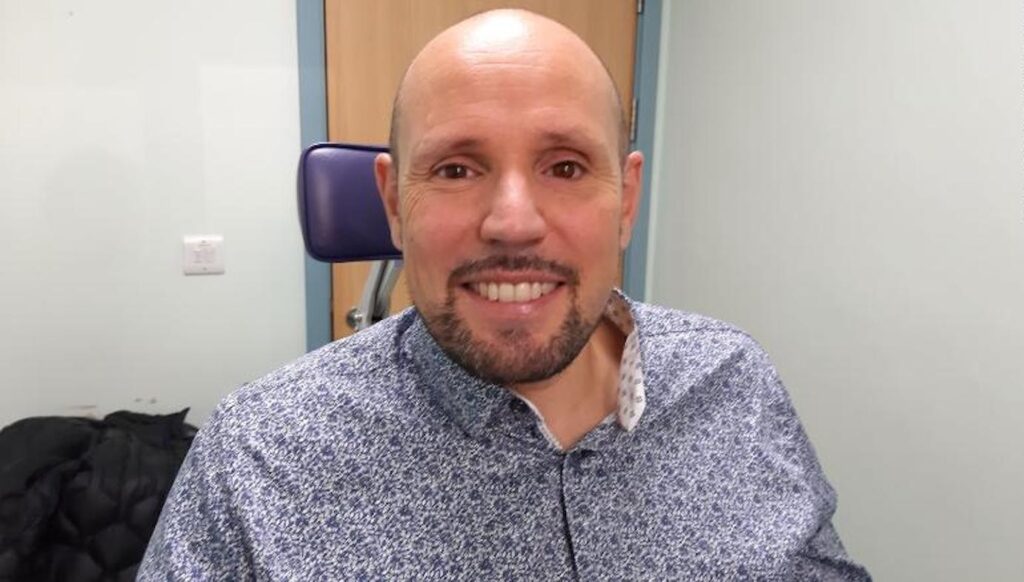
A Londoner has received the world’s-first 3D printed digital eye as a prosthetic.
Promising to cut the time it takes to develop a prosthesis by half, it’s also more realistic than other alternatives.
Steve Verze is a 47-year-old engineer from Hackney who had needed a prosthetic eye since he was 20. Last week he finally had it fitted.
“When I leave my home I often take a second glance in the mirror, and I’ve not liked what I’ve seen,” Verze said in a press release. “This new eye looks fantastic and, being based on 3D digital printing technology, it’s only going to be better and better.”
MORE: Bride Surprises Blind Groom by Wearing a Special Tactile Wedding Dress: ‘My mind was blown’
Normal prosthetic eyes involve hand-painting an iris onto a disc that is then inserted into the eye socket. However since the eyes are the windows to one’s soul, the light reflecting off the disc rather than penetrating to the full depth like a natural iris will give it away.
Also, along with needing just three weeks to prepare compared to a normal six, 3D printed eyes are much less invasive.
To make a traditional prosthetic eye a physical mold must be taken of the eye socket, but the 3D printer needs only a digital scan which is not only cleaner and faster, but more accurate.
Verze’s functional eye was also scanned to ensure the details between the two would be the same.
RELATED: Implanted Electrodes Could Offer Improved Vision for 148 Million Blind People
Clinical lead Professor Mandeep Sagoo of Moorsfields Eye Hospital where the procedure took place said: “We hope the forthcoming clinical trial will provide us with robust evidence about the value of this new technology, showing what a difference it makes for patients.”
3D printing has been something of a revolution for the world of prosthetics, with the clever machines being used particularly often to cheaply and quickly restore limbs of animals like turtles, dogs, and ducks, and even a toucan.
GIVE Others an Eye of the Good News—Share This Story…




















